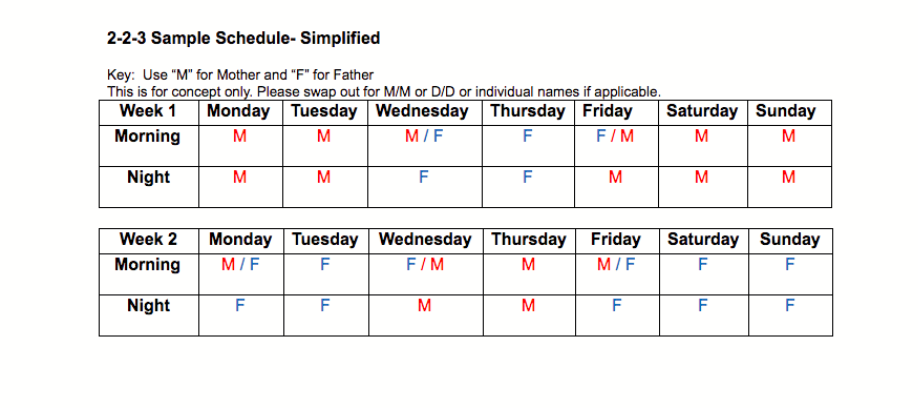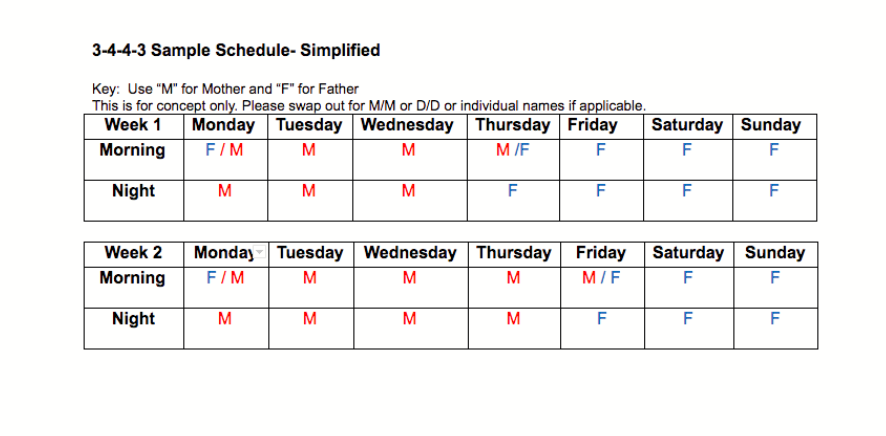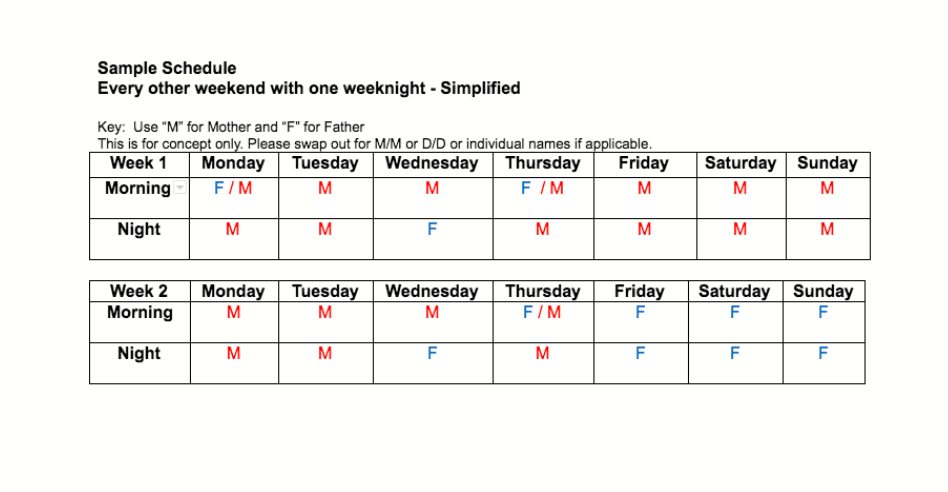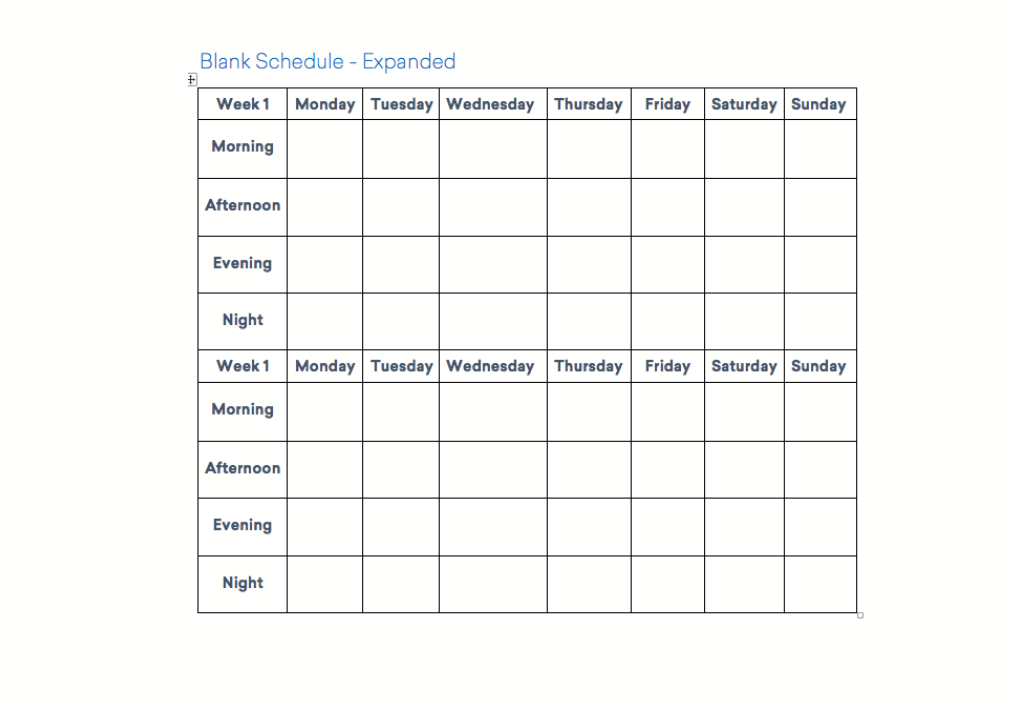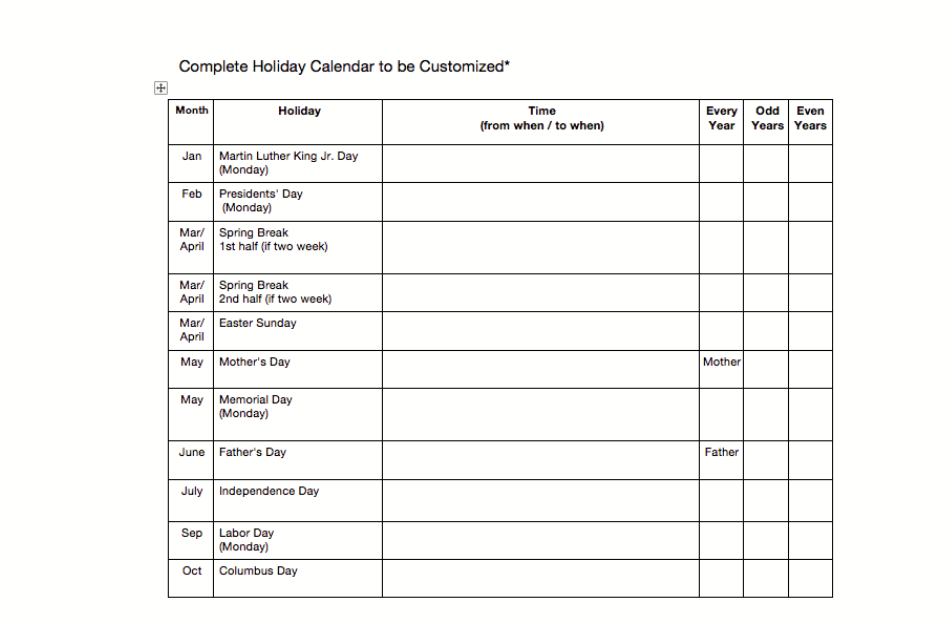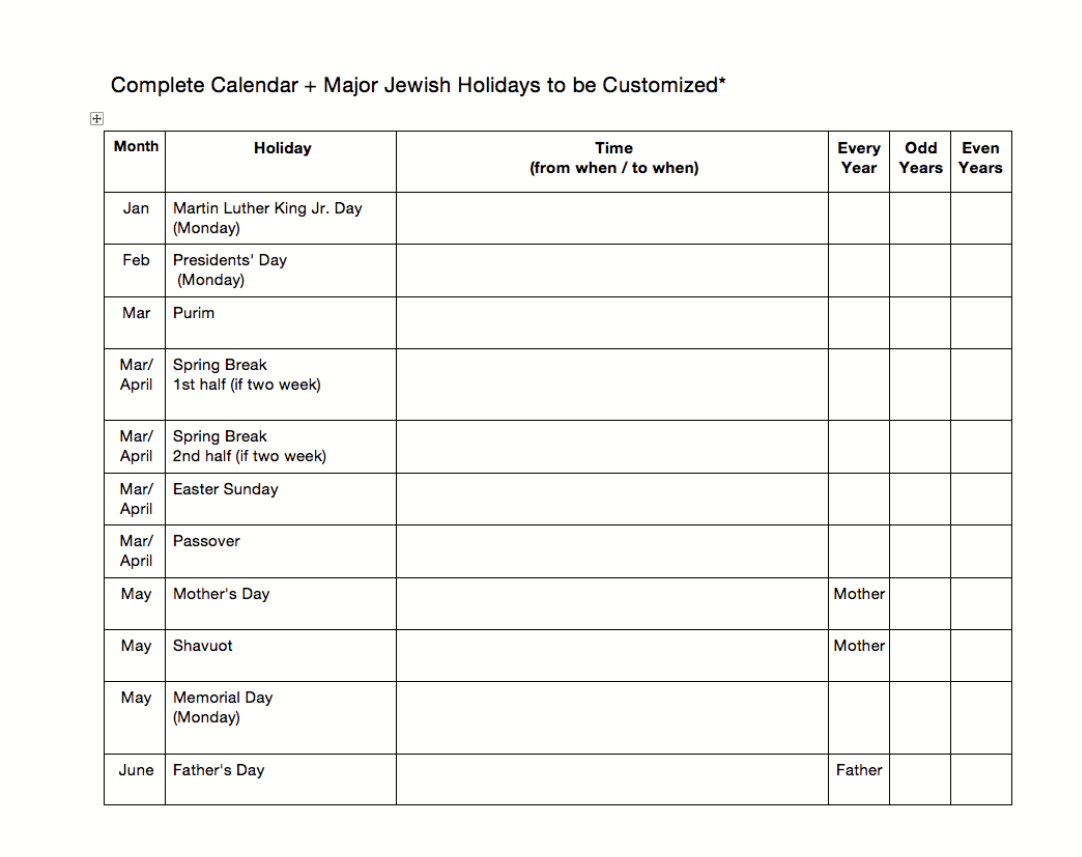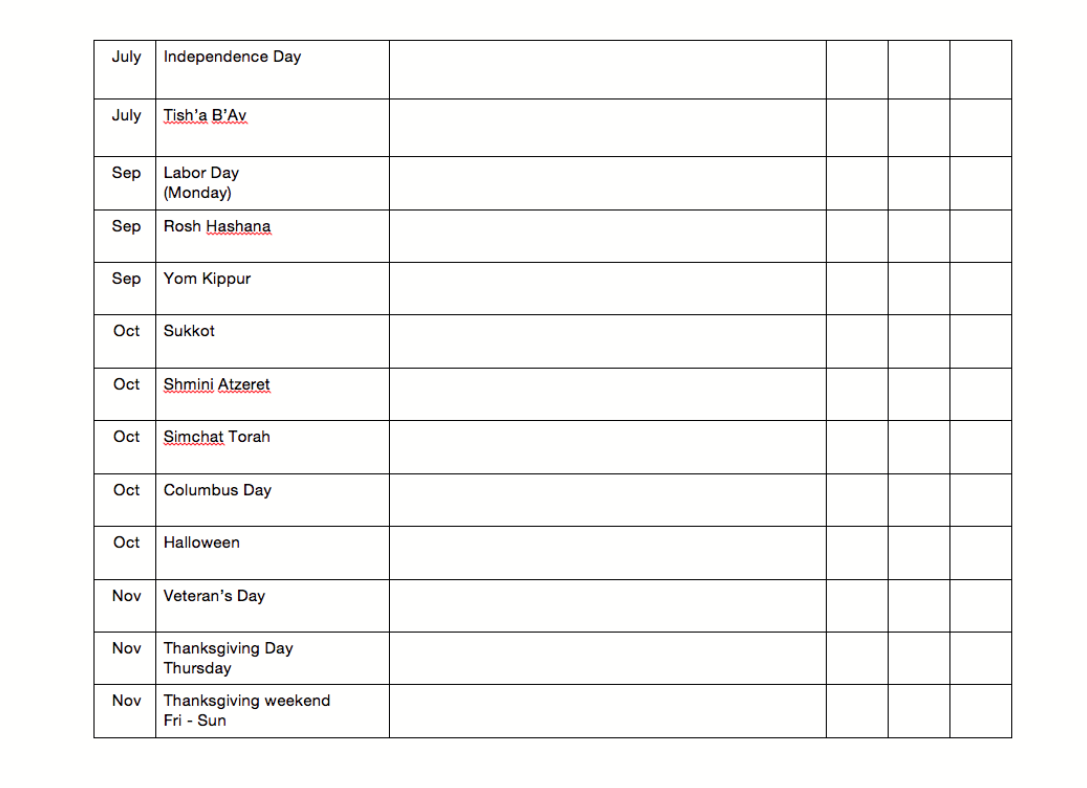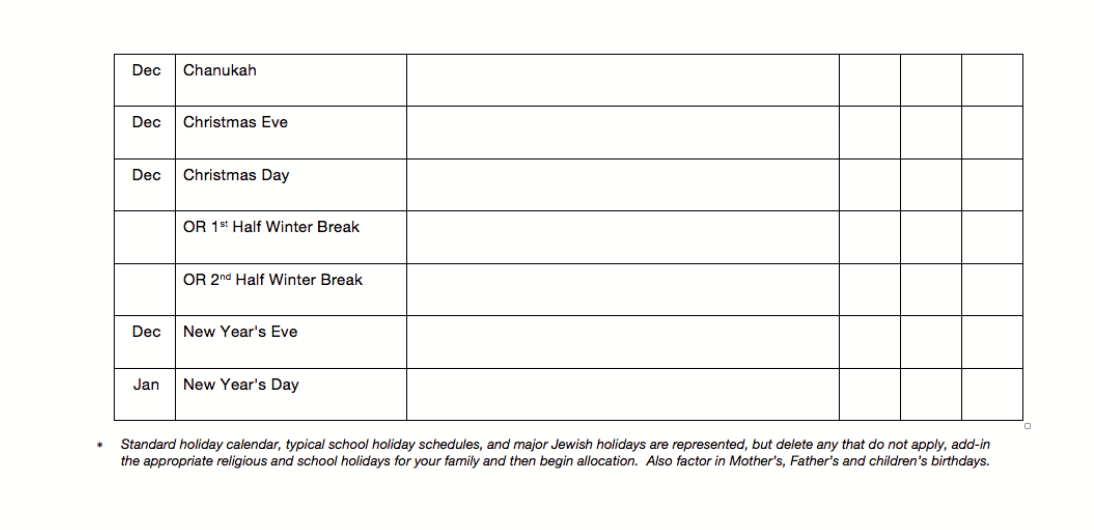Every family situation is different, but below are a few tips and sample calendar worksheets:
There are endless variations for parenting timeshare, or the amount of time a child spends with each parent, so we have simply provided a few examples below and a blank worksheet for you to experiment.
To minimize disruption, it is always ideal for transitions to occur at school.
An expanded calendar with afternoon and evening time allocations is below for situations when families might have a different parent pick-up for afternoon activities/homework, or dinner with the children.
Often children of varied ages will have different schedules to accommodate their needs.
Holidays and special events will disrupt the week to week schedule, with no accommodation, except in unique situations, so once a schedule is identified, we strongly recommend taking the actual monthly calendar and inputting the schedule with the holidays to be sure the result is acceptable. For example, if a holiday interruption results in a parent not seeing their child for excessive days or weekends in a row, then a trade or adjustment might be necessary to accommodate the other parent’s needs to spend time with the child.
Please note that many holidays land on Mondays so if a schedule assigns a parent to every Monday, have a look at the 12-month rotation to be sure this doesn’t significantly disadvantage one parent over the long-term.

Every family situation is different, but below are a few tips and sample calendar worksheets:
There are endless variations for parenting timeshare, or the amount of time a child spends with each parent, so we have simply provided a few examples below and a blank worksheet for you to experiment.
To minimize disruption, it is always ideal for transitions to occur at school.
An expanded calendar with afternoon and evening time allocations is below for situations when families might have a different parent pick-up for afternoon activities/homework, or dinner with the children.
Often children of varied ages will have different schedules to accommodate their needs.
Holidays and special events will disrupt the week to week schedule, with no accommodation, except in unique situations, so once a schedule is identified, we strongly recommend taking the actual monthly calendar and inputting the schedule with the holidays to be sure the result is acceptable. For example, if a holiday interruption results in a parent not seeing their child for excessive days or weekends in a row, then a trade or adjustment might be necessary to accommodate the other parent’s needs to spend time with the child.
Please note that many holidays land on Mondays so if a schedule assigns a parent to every Monday, have a look at the 12-month rotation to be sure this doesn’t significantly disadvantage one parent over the long-term.
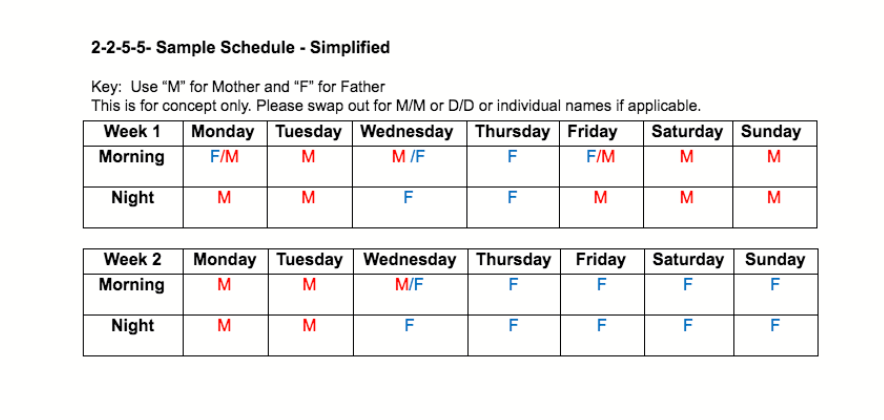
Specific guidelines for age-appropriate schedules are often used in high conflict situations and can be found on your state or county family law court website. The information contained here is for those families who are working together and/or with a child development expert to design a schedule that meets their family’s needs. We always recommend this whenever possible as it typically yields better results at a significantly reduced cost.
